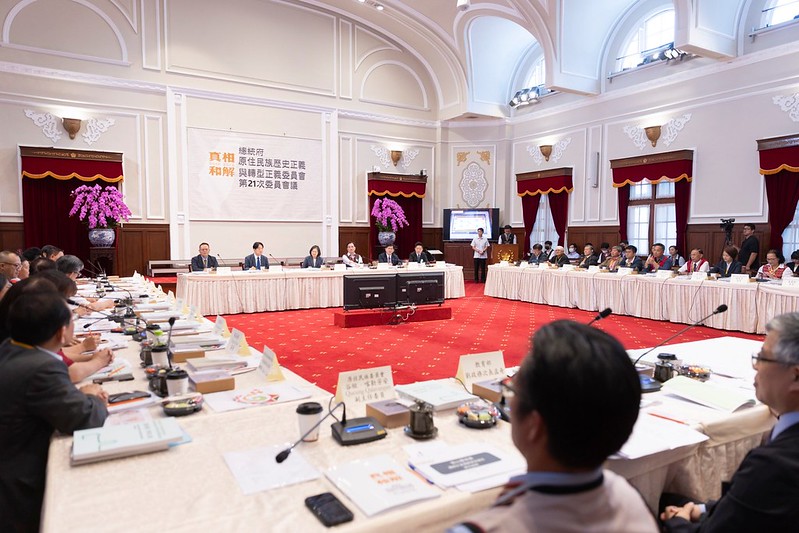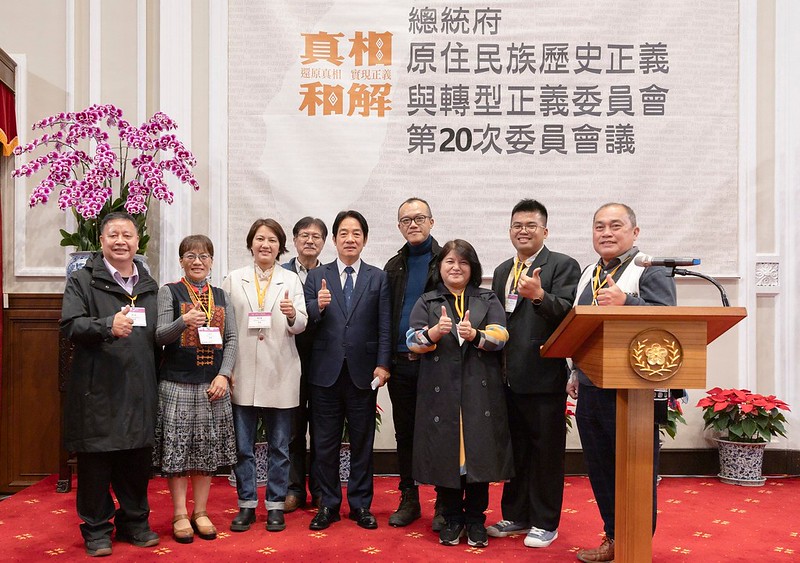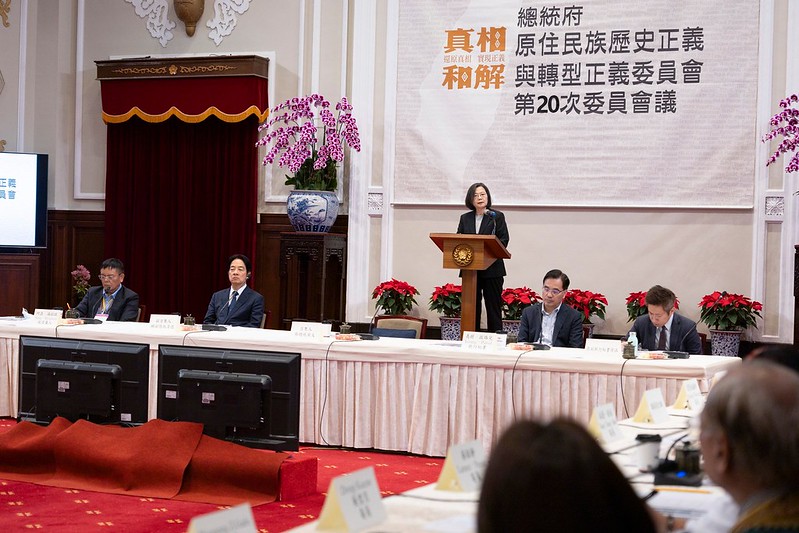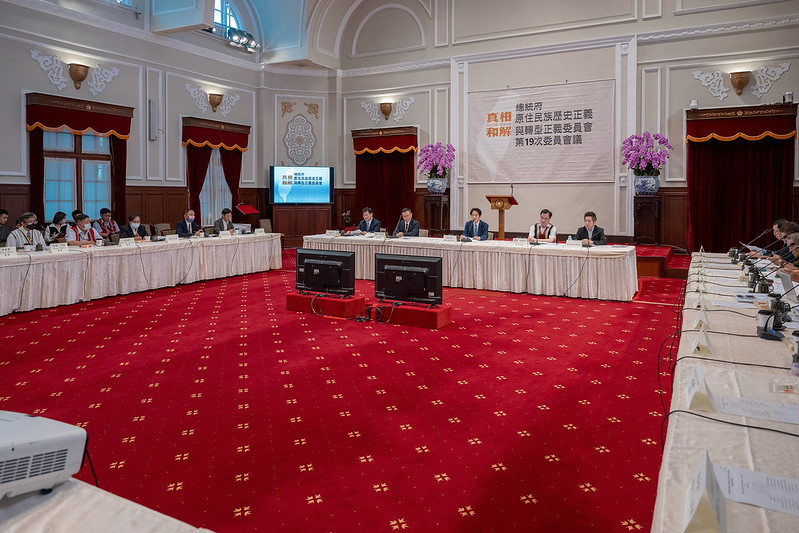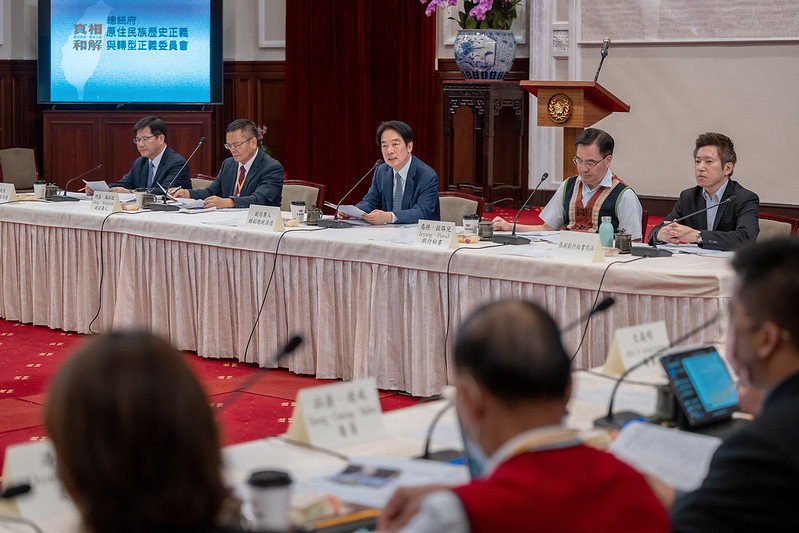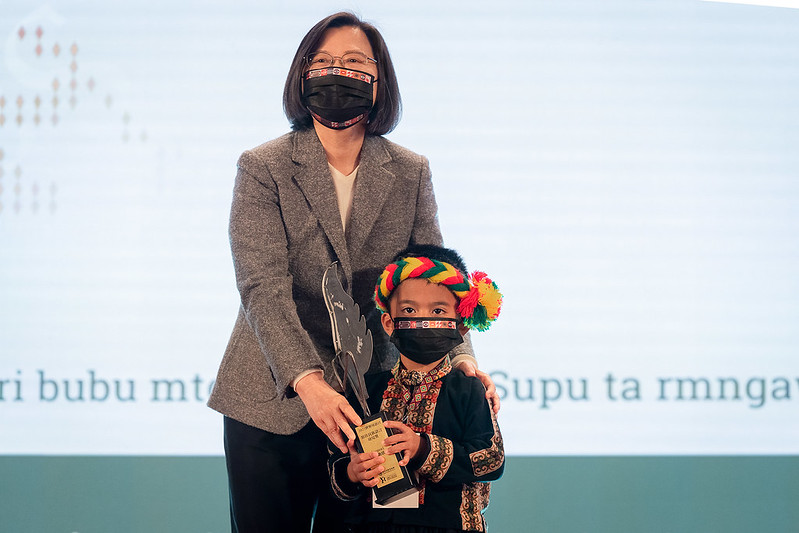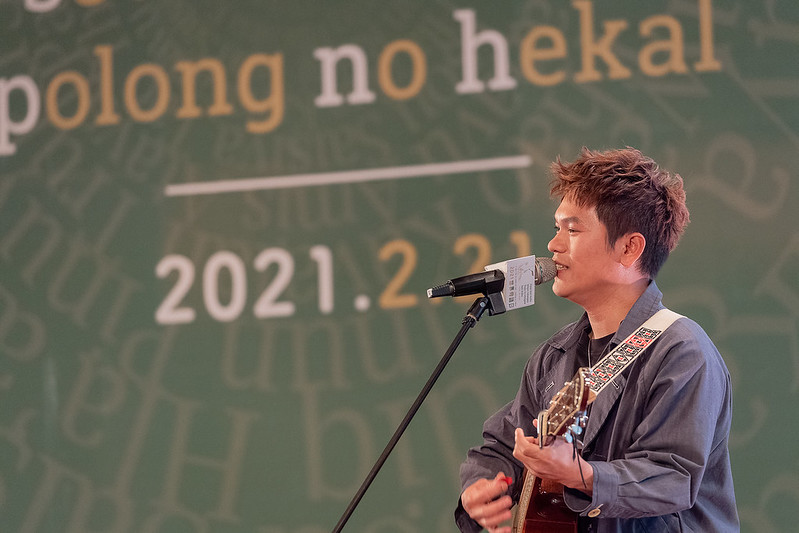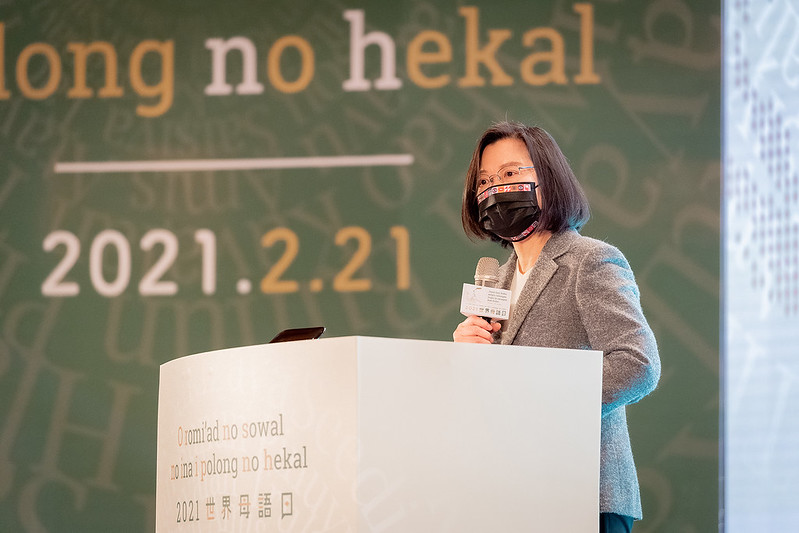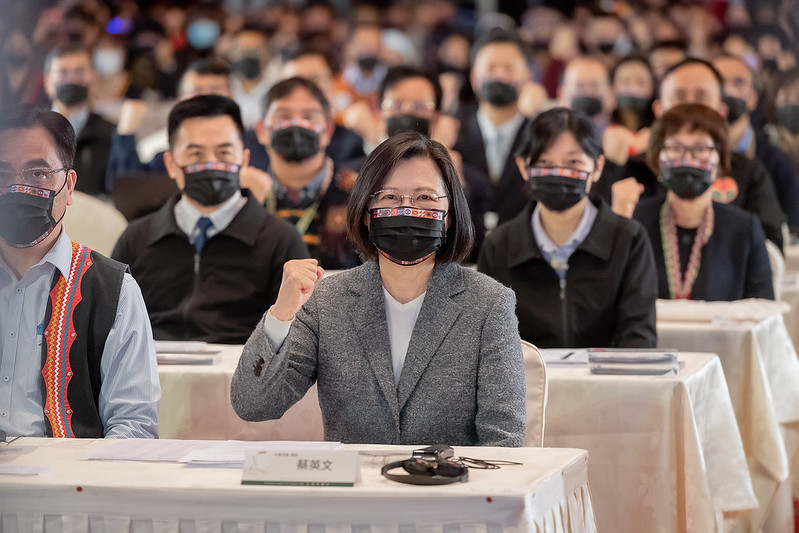News & activities
 News releases
News releases
On the afternoon of February 20, President Tsai Ing-wen delivered remarks at the 2021 International Mother Language Day: Indigenous Languages Revitalization Awards Ceremony and Development Conference. In her remarks, President Tsai said that since the passage of the Indigenous Languages Development Act and the National Languages Development Act a few years ago, our government has devoted more energy and resources to ensuring that people from all ethnic groups across Taiwan have an environment in which to learn and use their mother tongues. Stating her belief that the laws our government has passed, and the money spent on developing indigenous languages, only have meaning if more people are willing to learn and use these languages, the president expressed hope that Taiwan's indigenous language policies will have real meaning and impact, and that we can work together to revitalize this important part of Taiwan's cultural heritage.
Upon arrival, President Tsai took in a performance by Suming Rupi (舒米恩·魯碧) and watched a documentary about International Mother Language Day and promoting mother languages.
A translation of the president's remarks follows:
Tomorrow is International Mother Language Day, so I would like to greet everyone again using my own mother languages:
"Ta̍k-ke-hó" (Taiwanese).
"Tai gaˊ hoˋ" (Hakka).
"Djava djavai" (Paiwan).
I am delighted that for the past two years, right around International Mother Language Day, I have been able to participate in the Indigenous Languages Development Conference, and to witness our achievements in revitalizing and developing indigenous languages. Since the passage of the Indigenous Languages Development Act and the National Languages Development Act a few years ago, our government has devoted more energy and resources to ensuring that people from all ethnic groups across Taiwan have an environment in which to learn and use their mother tongues.
That is especially true for indigenous languages. With support from the Legislative Yuan, and cooperation between central and local governments, the budget to develop indigenous languages has increased fivefold. Schools and preschools have more full-time indigenous language teachers and educare personnel. Local governments have indigenous language extension officers. And members of various tribes have set up organizations to promote the study of indigenous languages.
We are also using master-apprentice language learning programs and financial incentives to help bring indigenous languages back into everyday life, so that these languages can once again truly be "mother languages." Here today are people from all over the country who are committed to promoting indigenous languages. Your participation is critical to this undertaking.
The laws our government has passed, and the money it spends on this work, only have meaning if more people are willing to learn and use indigenous languages, especially in their daily lives. I want to thank each of you here today for working together to ensure that our indigenous language policies have real meaning and impact. Together, you have revitalized indigenous languages.
We saw that new life at last year's Golden Melody Awards, where the album Kinakaian ("Mother Tongue") by the Paiwan singer Abao won Album of the Year, and one of her songs was named Song of the Year. Hers was one of Taiwan's best known voices of 2020. I sincerely believe that indigenous languages are an indispensable part of what Taiwan is, and a key source of our cultural vitality.
Let's all keep up the hard work, and let me specially congratulate the award recipients recognized here today. In closing, let me just say that I look forward to a very successful two-day conference. I wish you all a Happy New Year.
After concluding her remarks, President Tsai presented various indigenous language awards.
